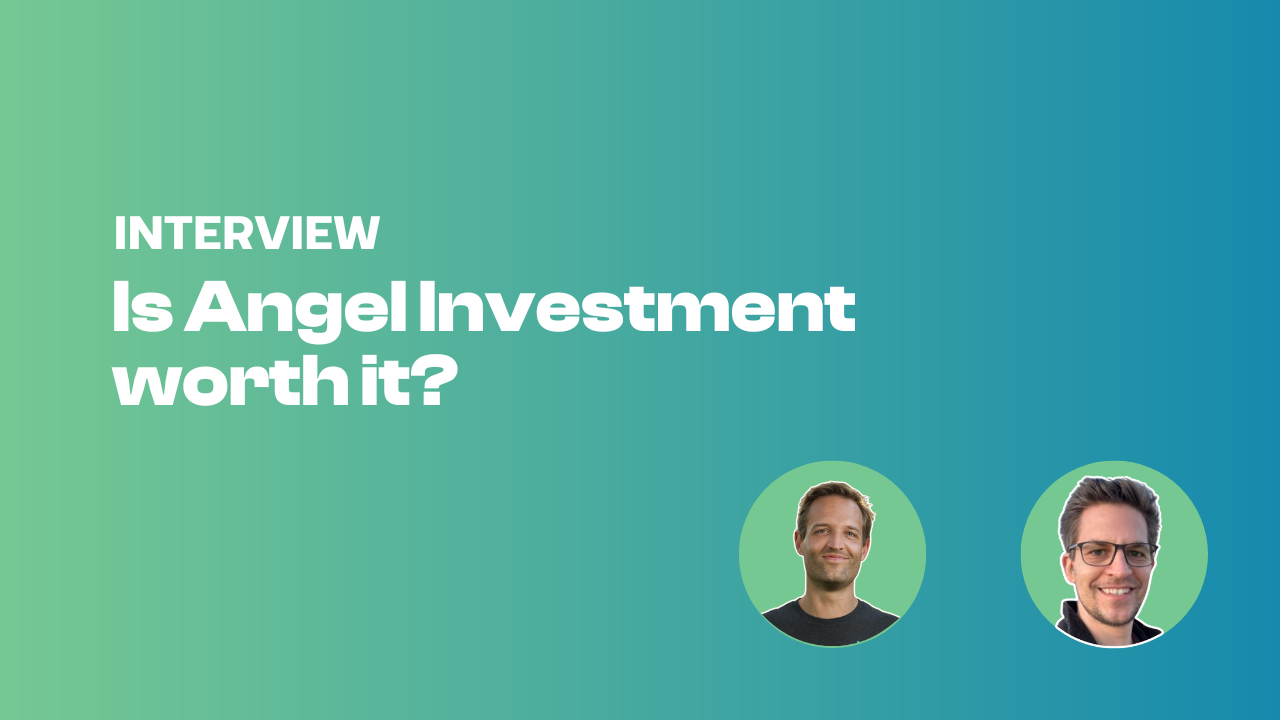Real Talk About Angel Investing: Lessons from Someone Who Just Sold His Company
Have you ever wondered what it's like to become an angel investor?

Maybe you've had a successful exit, or you're sitting on some savings and thinking about backing the next big thing. Well, I recently had an fascinating chat with Konstantin Ristl, who just sold his company and found himself asking these exact questions.
The Million-Euro Question: Should I Become an Angel Investor?
Here's the thing - when you suddenly have liquid assets after selling your company, everyone seems to expect you to join the angel investing club. Konstantin was curious about this path too, but what he discovered might surprise you.
"I've always been intrigued by investing and being a business angel," he shared with me, his eyes lighting up. "But you know what's funny? The more I learn about it, the less certain I am about diving in completely."
Let's Talk About "Smart Money" (And Why It Might Not Be So Smart)
You've probably heard the term "smart money" thrown around - you know, those investors who say they bring more than just cash to the table. Konstantin had some refreshingly honest thoughts about this.
Picture this scenario: An investor says your company is worth €1 million and offers €100,000 for 10%. But wait - they want 15% because they're "smart money." Their argument? Those extra 5% are for their brilliant insights and amazing network. Sounds great, right?
Well, not so fast. As Konstantin puts it, this is often more myth than reality. While some investors genuinely bring valuable expertise or connections, it needs to be concrete and measurable - not just fancy promises.
The Real Numbers (Warning: They Might Make Your Head Spin)
Ready for some eye-opening math? Here's what it actually takes to be a serious angel investor:
- You need to invest in at least 15-20 companies (yes, really!)
- Each investment typically runs between €25,000 and €100,000
- Here's the kicker: you need to double that amount for follow-up investments
- Total capital needed? About €1 million dedicated just to startups
- Expected returns? Around 10% annually if you're doing well
When you crunch these numbers, as Konstantin did, you realize something interesting: "Even if you're making 10% on €1 million, that's €100,000 annual revenue. Sure, it's a nice income if you're flying solo, but try building a team with that!"
A Different Way: The Lorien Story
Now, here's where it gets interesting. Despite all his skepticism about full-time angel investing, Konstantin recently invested in a sustainable forestry startup called Lorien. Contradictory? Not quite.
"Look," he explains, "I'm not approaching this as a traditional angel investment. This is more like a 'Friends, Family, and Fools' thing. I know Matthias, the founder, I trust him, and if it works, we're doing something amazing for the planet. If it doesn't? Well, I supported something meaningful."
My Favorite Part: Learning as an Investment
Here's what really got me excited: Konstantin's perspective on education and learning. He shared this fascinating approach about setting aside 10% of your net income for personal development, inspired by Eastern European education philosophy.
"I see it this way," he says, "even if an investment doesn't work out financially, what I learn from the experience is invaluable. It's not just about the money - it's about growing and understanding."
About Lorien:
"Lorien is a business that allows investors and partners to co-create wealth with nature profitably, regeneratively, and sustainably. Through our Trees of the Future, we’re not just producing high-quality, fast-growing hardwood; we’re protecting forests, revitalizing ecosystems, and giving investors a chance to “do well and do good” at the same time."
What Does This Mean for You?
If you're thinking about angel investing, here are the key things to keep in mind:
- Be honest about your resources - both money and time
- Don't fall for fancy "smart money" promises without clear value
- Ask yourself: Do you want this to be your main focus?
- Value the learning experience (it might be worth more than the money)
- Remember what Konstantin calls "Proximity is power" - being close to innovative entrepreneurs has its own rewards
The Bottom Line
Here's what I love about my conversation with Konstantin: it shows that angel investing isn't just about throwing money at startups. It's about understanding yourself, your goals, and what you really want to achieve.
Sometimes the best returns aren't in your bank account - they're in what you learn, the people you meet, and the innovations you help bring to life. As Konstantin puts it, "Being involved in the startup ecosystem, learning from entrepreneurs, and supporting innovative ideas - that's rewarding in itself."
Disclaimer: This article is based on personal experience and should not be considered financial advice. Always consult with a qualified financial advisor before making investment decisions.
